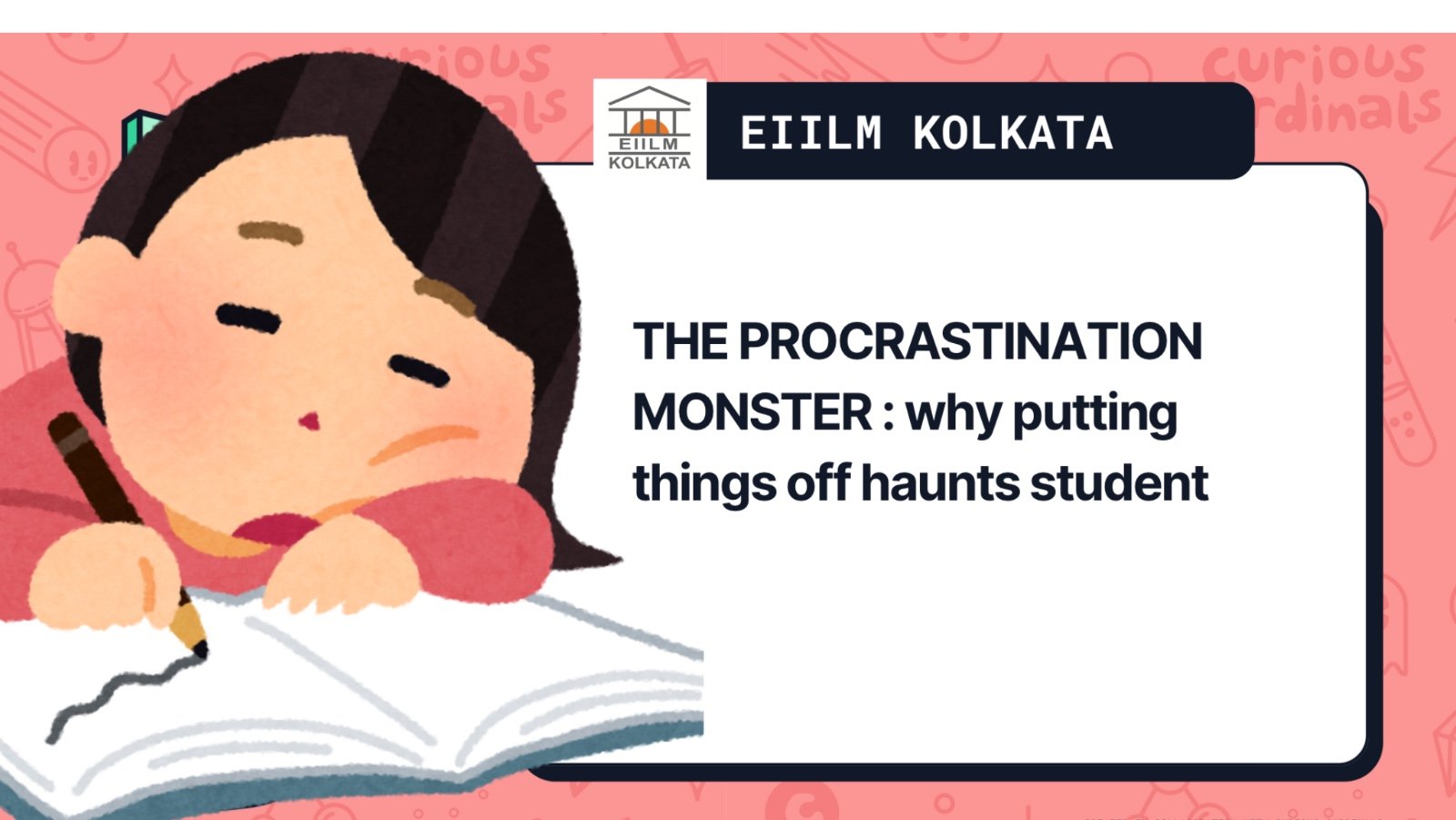The dreaded deadline looms, a dark cloud on the horizon. Yet, instead of diligently tackling that research paper or prepping for the upcoming exam, you find yourself inexplicably drawn to the allure of social media, that captivating new show, or the seemingly endless rabbit hole of the internet. This, my friends, is the insidious grip of the Procrastination Monster, a sneaky villain that plagues students of all ages and academic backgrounds.
While the occasional delay might seem like a harmless indulgence, chronic procrastination can have a devastating impact on your academic performance, well-being, and overall success. Let’s delve into the dark side of procrastination and explore the reasons why kicking this habit is crucial for academic triumph.
The Vicious Cycle of Procrastination:
Procrastination thrives on a self-perpetuating cycle of avoidance and stress. You initially convince yourself there’s more time than truly exists, leading to a temporary feeling of calm. However, as the deadline approaches, the pressure builds, and anxiety sets in. This often results in last-minute cramming, rushed work, and a feeling of overwhelm. This cycle can have a multitude of negative consequences:
- ◘ Reduced Quality of Work: Sacrificing precious time for last-minute efforts often translates into poorly researched papers riddled with errors, or incomplete assignments that fail to showcase your full potential.
- ◘ Missed Learning Opportunities: Procrastination disrupts the process of spaced repetition and in-depth study, leading to a shallow understanding and difficulty retaining information.
- ◘ Increased Stress and Anxiety: The constant pressure of looming deadlines and the fear of failure creates a breeding ground for stress and anxiety, which can negatively impact your mental health and overall well-being.
- ◘ Decreased Confidence: Consistently underperforming due to procrastination can erode your confidence in your abilities. This negatively impacts your academic self-esteem and motivation to learn and excel.
- ◘ Negative Impact on Health: Procrastination can lead to unhealthy coping mechanisms like sleep deprivation or poor food choices, further impacting your ability to focus and perform well.
Why Do Students Procrastinate?
The word “lazy” often gets thrown around when discussing students who struggle with motivation. But the reality is far more nuanced. There are many reasons why students might appear unmotivated, and simply labelling them as lazy can be counterproductive. Understanding the root causes of procrastination allows you to develop more effective strategies for overcoming it. Here are some common culprits:
- ◘ Fear of Failure: Some students procrastinate out of fear of not meeting expectations or failing altogether. The thought of tackling a challenging project may be so daunting that they delay starting, hoping to avoid the possibility of disappointment.
- ◘ Perfectionism: The desire for flawless work can be a double-edged sword. Students may get caught up in the details, constantly revising and rewriting, instead of completing the task in a timely manner. This perfectionist mindset can lead to paralysis, hindering progress.
- ◘ Lack of Time Management Skills: Poor planning and organization often lead to underestimating the time needed to complete tasks. Students may underestimate the complexity of a project or overestimate their ability to multitask effectively.
- ◘ Difficulty with Focus and Organization: Students with attention deficit hyperactivity disorder (ADHD) or other focus-related issues may find it challenging to initiate tasks and stay on track. Difficulty with organization can further exacerbate procrastination tendencies.
- ◘ Lack of Motivation: Some students simply may not find the subject matter engaging or lack clear goals for their academic pursuits. This can lead to a lack of motivation to tackle assignments, especially those perceived as tedious or irrelevant.
Slaying the Procrastination Monster: Practical Strategies for Success:
The good news is that procrastination isn’t an inherent character flaw, and it’s certainly not a life sentence. Here are some powerful strategies to slay the procrastination monster and become a master of your time:
- ◘ Set SMART Goals: Start by breaking down large, intimidating tasks into smaller, more manageable steps. Utilize the SMART goal framework to make your goals Specific, Measurable, Attainable, Relevant, and Time-bound. This will provide a clear roadmap and a sense of accomplishment as you tick off completed tasks.
- ◘ Develop a Schedule and Stick to It: Create a daily or weekly schedule that allocates specific time slots for dedicated work on different assignments. Use a planner or digital calendar to help you visualize your commitments and stay organized. Treat these dedicated work sessions with respect, minimizing distractions, as you would a scheduled meeting or appointment.
- ◘ Minimize Distractions: Social media can be a black hole of wasted time. Turn off notifications on your phone, close unnecessary browser tabs, and find a quiet space to work. Consider using website blockers or apps that restrict access to distracting websites during designated work periods.
- ◘ Reward Yourself: Positive reinforcement is a powerful tool for promoting positive change. Set small rewards for completing specific tasks or milestones, like taking a short break, indulging.
Conclusion:
Remember, feeling discouraged or lacking motivation doesn’t make you lazy. By addressing the underlying issues and implementing these strategies, you can overcome these challenges and become a more engaged and successful student. Embrace the journey of learning, celebrate your progress, and don’t hesitate to seek support – your academic success is within reach!


